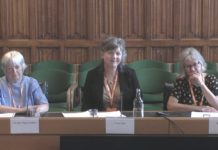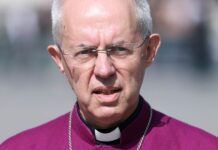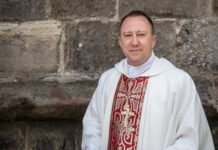Conscious of challenges facing theological education, a gathering of representatives and key people met in Austin, Texas at Seminary of the Southwest. Convened by the Council of Episcopal Seminary Deans with the support of Trinity Church Wall Street, attendees included the Rt. Rev. Susan Snook, the Rt. Rev. Andy Doyle, the Rt. Rev. Alan Shin, Mary Kate Wold, the Rev. Canon Chuck Robertson, Rob Garris, and the Rev. Philip Jackson. The Very Rev. Martha J. Horne, Dean Emerita of Virginia Theological Seminary, served as facilitator. A shared conviction emerged that we needed a season of cooperation, data sharing, and imaginative mechanisms to coordinate and strengthen theological education for leaders so that The Episcopal Church can flourish.
The group was briefed on ordination and employment trends from the Church Pension Group and the General Convention Office and heard from providers of residential, hybrid and online MDiv Episcopal formation, from those resourcing local formation, and from university divinity schools.
Among the key insights were the shortage of clergy and the aging profile of those currently serving, as well as the changing shape of employment prospects as numerous parish communities themselves undergo change. Participants agreed on the need for a variety of models of training for this diverse and fluid reality, and expressed a shared hope that this conversation would initiate further cooperation and coordination among all those involved in lay and clergy formation.
The Council of Deans agreed to a number of next steps:
- To communicate with the House of Bishops committee on theological education about this discussion about the changing shape of theological education and to seek to respond with them to the need for effective ministerial leadership and increased numbers of effectively-formed clergy.
- To create a task force, in collaboration with the Bishops, to explore the following: the precise state of play (numbers of local formation programs, houses of study), the capacity for training priests currently in the system, the approximate projection of clergy needs in the future, and the needed modes of delivery.
- To convene regularly an expanded meeting with representatives of all the major providers of theological education in The Episcopal Church. This would include: local formation providers, embedded Anglican Houses in other institutions, and other entities focused on raising up congregational leadership.
- To consider the following agenda items, in conversation with Bishops, including: flexibility for admission to the MDiv, lowering barriers for discernment to holy orders, recruitment of candidates from diverse backgrounds.
- To consult with one another as their missions and strategies are further developed, and where possible to seek means of cooperation to benefit those preparing for ministry through the church.
The group thanked Dean Horne, Dean Cynthia Kittredge, Dean Andrew McGowan, and the Rev. Philip Jackson for their work in bringing the event together.



